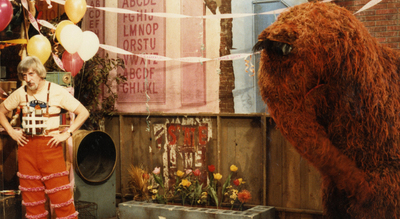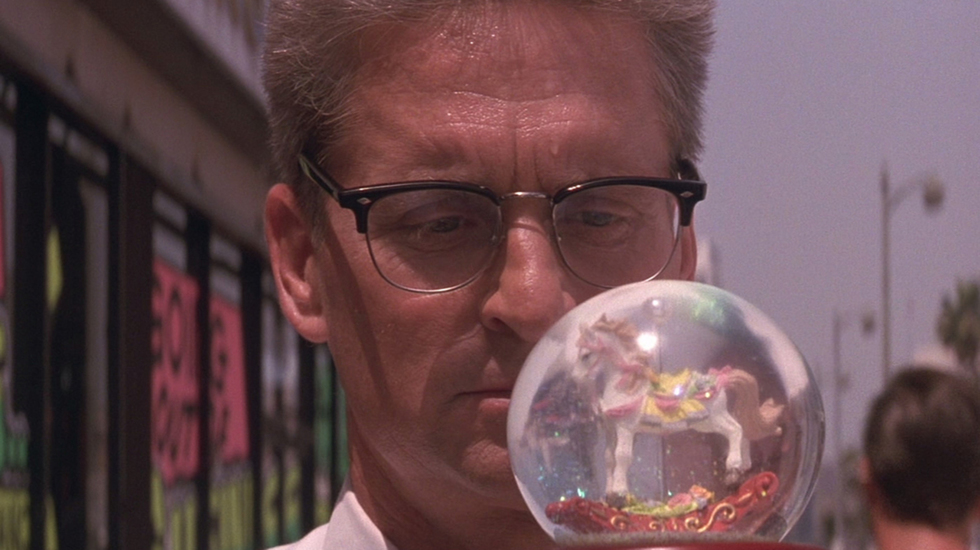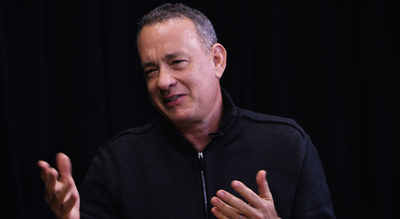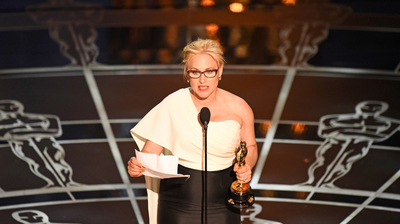
BY KAREN KEMMERLE |
Why Joel Schumacher Ruled the ‘90s
In honor of the 74th birthday of this versatile auteur (yes, that is the correct word), we celebrate Joel Schumacher’s five most important films of the nineties.

In his four decades of directing, Joel Schumacher has never made a boring movie. While some entries in his filmography are admittedly injudicious (Batman & Robin) or just plain baffling (Phantom of the Opera), Schumacher has never been afraid to experiment within any genre. No matter the size or scope of the project, he remains unintimidated.
Schumacher really started to gain ground in the eighties with hits like The Lost Boys and St. Elmo’s Fire, proving that he could put a unique spin even on potential blockbusters and execute them flawlessly. Schumacher really hit his stride in the 1990s, however. With films that ranged from intense characters explorations to ensemble pieces to high profile adaptations to comic franchises, Schumacher soon became known as one of Hollywood’s most versatile and fearless directors.
Join us as we celebrate the filmmaker by taking a look back at 5 movies that helped ensure his reign as the King of Nineties.

Flatliners (1990)
Philosophy failed. Religion failed. Now it’s up to the physical sciences.
Following on the heels of the Brat Pack, Flatliners provides fascinating exploration of life after death from the perspective of a group of rogue medical students who daringly visit the other side and come back with more than they bargained for. Schumacher assembled one of cinema’s most beautiful casts with Julia Roberts, Keifer Sutherland, Kevin Bacon and Billy Baldwin lovingly featured and, Oliver Platt along for the ride. Ignoring some of the silly moments from the film (yes, Sutherland’s God complex gets to be a little much), we still can appreciate Schumacher’s deft direction of this original and thought-provoking thriller. An added bonus is Jan De Bont’s moody cinematography that so effectively creates an ominous sense of the danger and menace.

Falling Down (1993)
I am not a vigilante. I am just trying to get home to my little girl’s birthday party and if everyone will just stay out of my way, nobody will get hurt.
Have you ever just felt tired and frustrated with your lot in life? Hopefully, not to the extent of William “D-Fens” Foster in Falling Down, played with a sad, matter-of-fact, ferocity by Michael Douglas. Devoting his attention to a film about one man’s struggle, Schumacher renders a gripping tale of vigilantism that springs from his character’s growing disenchantment with the world around him. The filming of Foster’s rampage through the worst parts of Los Angeles after he snaps during a traffic jam is Schumacher at his finest.
 Batman Forever (1995)
Batman Forever (1995)
By the way, do you have a first name, or do I just call you Bats?
It’s hard to believe that superhero movies were relativity scarce in the nineties. Schumacher was charged with the difficult task of picking up the Batman franchise and “lightening up the mood” after Tim Burton’s two stellar outings, and he was up to the task. Sure, he screwed the pooch on Batman & Robin (though he shouldn’t take the brunt of the blame for that fiasco), but Batman Forever is an entertaining entry into the franchise with a visually stunning Gotham clearly inspired by German expressionist films, and a generally light and airy tone (with the exception of the Grayson family murder, of course). Also, who doesn't love Nicole Kidman as the scintillating Dr. Chase Meridian? If you’re not a Batman purist, it’s okay to let yourself go and enjoy the ride.

A Time to Kill (1996)
It ain’t easy saving the world, even one case at a time.
Schumacher directed two John Grisham courtroom dramas in the 90s—The Client and A Time to Kill, and while both are excellent, we think A Time to Kill deserves special mention. An absorbing legal drama that explores racism in the “new” South, the film focuses on a black man who is put on trial for murdering the men who raped his 10-year old daughter. Eliciting strong performances from Matthew McConaughey, Samuel L. Jackson and Kevin Spacey, Schumacher keeps audiences engaged throughout this two and a half hour morality play employing striking imagery (who can forget that burning cross in Brigance’s front yard?) and riveting courtroom camera work. The film closes with an unforgettable climax that alone justifies the re-watching.

Flawless (1999)
I see you sitting there all alone, hiding from life. Poor me, poor me, pour me another. Trust me. I’ve been there before, sweetheart. Come upstairs and face the music like the man you’re supposed to be.
Schumacher has never been afraid to let his softer side show. The proof? He ended his marathon decade by writing and directing Flawless, a surprisingly compelling film about two unlikely tenants in a NYC building who find solace in one another. Robert De Niro stars as Walt Koontz, a tough, ultraconservative New York cop who suffers a stroke. Part of his rehabilitation therapy consists of singing lessons from his neighbor, a drag “artist” named Rusty that help recover his speech. Schumacher works well with De Niro and Philip Seymour Hoffman, and the film is full of quiet moments as the plot unfolds. Even when events take an unexpectedly dark turn, the audience stays completely in Schumacher’s world. This moving character study richly deserves a second look.

